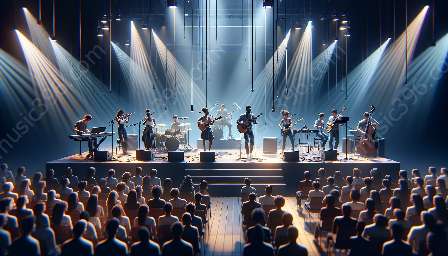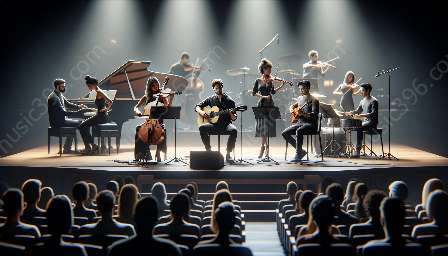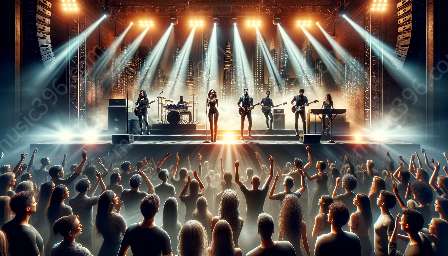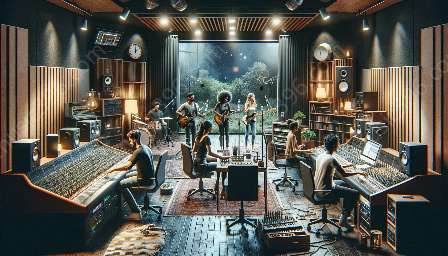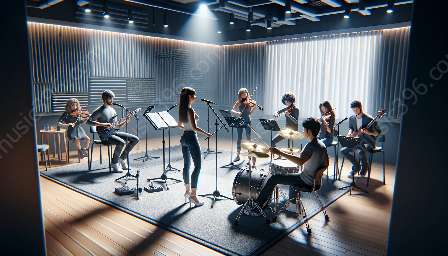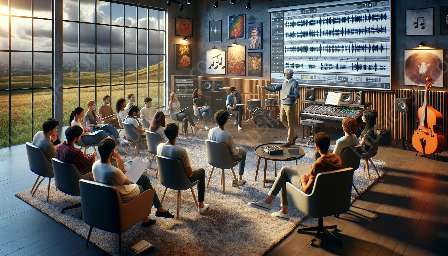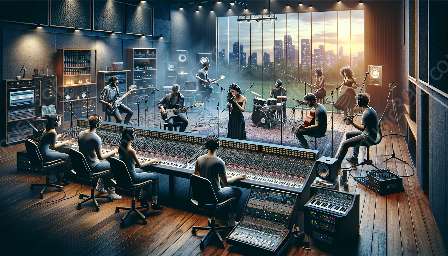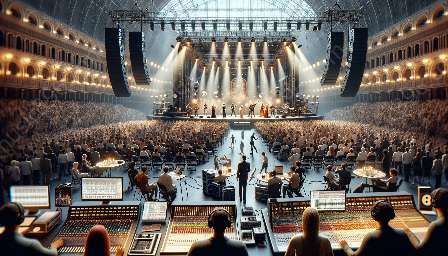Stage presence plays a crucial role in the success of music studio and live performances. It encompasses a range of factors such as body language, confidence, charisma, and audience engagement, all of which contribute to the overall impact of a performance. Understanding how stage presence influences the performers and the audience is essential for musicians and music studio professionals. In this comprehensive guide, we'll delve into the significance of stage presence and its effects on music performances.
The Importance of Stage Presence in Music Performance
Stage presence can be defined as the ability of a performer to connect with the audience and create an impact through their presence on stage. In the context of music performances, stage presence encompasses both the physical and emotional aspects of a musician's demeanor while on stage. It goes beyond musical talent and technical proficiency, as it directly affects the audience's perception of the performance and the overall experience.
For music studio performances, where the audience may be limited to recording engineers, producers, and fellow musicians, stage presence still plays a crucial role. The ability of a performer to convey their emotions and engage with the music can significantly impact the quality of the studio recording and the subsequent production process. A captivating stage presence can elevate a studio performance, resulting in a more compelling and emotive recording.
Body Language and Confidence
One of the key components of stage presence is body language. A musician's body language can convey a range of emotions and intentions, influencing the audience's perception of the performance. Confidence is also closely linked to body language, as a confident performer is more likely to command attention and create a memorable experience for the audience.
In a music studio setting, where the performer may be recorded in a controlled environment, body language still plays a significant role. The energy and emotion conveyed through body language can translate into a more impactful studio recording, adding depth and authenticity to the musical performance.
Charisma and Connection with the Audience
Charisma is another aspect of stage presence that can greatly enhance a music performance. Charismatic performers have the ability to captivate the audience and create a memorable experience. This quality can be particularly impactful in live performances, where the interaction and connection with the audience are central to the experience.
Even in the context of music studio performances, charisma can elevate the recording process by infusing the music with an intangible quality that resonates with the listeners. A performer's ability to connect with the music and convey their emotions can greatly enhance the studio recording, making it more compelling and engaging for the audience.
Audience Engagement and Artistry
Stage presence directly influences audience engagement, which is essential for creating a meaningful and memorable music performance. Engaging the audience through compelling stage presence can evoke emotional responses and create a deeper connection between the performer and the listeners.
In a music studio environment, audience engagement may be more limited, but it is still relevant in terms of connecting with the recording engineers, producers, and other collaborators. A captivating stage presence can inspire and elevate the artistic expression captured in the studio recording, leading to a more impactful and authentic musical output.
Developing and Improving Stage Presence
For musicians and music studio professionals, developing and improving stage presence is an ongoing process that requires self-awareness, practice, and feedback. Techniques such as visualization, mindfulness, and performance coaching can help performers enhance their stage presence and become more impactful and compelling on stage.
In a music studio setting, performers can benefit from understanding how their stage presence translates into studio recordings. By cultivating an awareness of how body language, confidence, charisma, and audience engagement influence the recording process, musicians can enhance their studio performances and enrich the overall sound and emotion of their music.
Conclusion
Stage presence is a critical element of music performances, whether in a live setting or a music studio environment. Its influence on audience perception, performer confidence, and the overall artistic expression makes it an essential aspect of musical expression. By understanding and harnessing the power of stage presence, musicians and music studio professionals can elevate their performances and create more profound and memorable musical experiences.


